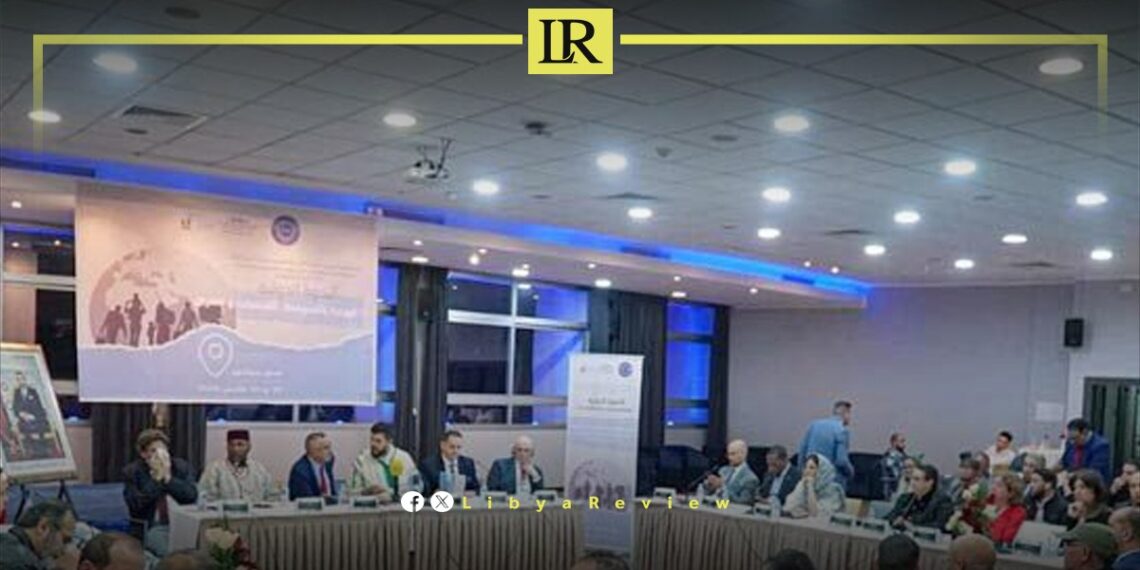The Foreign Minister of the Libyan Government-designate Abdulhadi Al-Hwaij has called for cooperation and partnership in managing migration issues, steering clear of practices reminiscent of domination and colonization.
During his speech at the International Seminar on Mediterranean Migration held in Tangier, Morocco, Al-Hwaij emphasised the need for the Mediterranean to be a space of peace, coexistence, and love rather than a sea of death and destruction.
The seminar featured various interactive sessions attended by experts, researchers, policymakers, and migration sector workers from European Union countries and African nations, as revealed in a statement released on the government’s Facebook page.
Representing the government’s presidency, Al-Hwaij highlighted the importance of developing a new approach to migration that centers around Africa. He stressed the necessity for cooperation and partnership over the historical echoes of dominance and colonization.
Furthermore, the Foreign Minister reaffirmed the government’s commitment to hosting the African-European Conference, in line with the Benghazi Declaration from the African Migration Conference held last January.
On Saturday, the Government-designate announced its readiness to host the inaugural African-European Migration Conference in Benghazi later in May, signaling a proactive step towards addressing migration issues through dialogue and collaboration.
This move underscores the Libyan government’s dedication to fostering a constructive international dialogue on migration, prioritizing humanitarian principles over divisive policies.
Libya has been in chaos since a NATO-backed uprising toppled longtime leader Muammar Gaddafi in 2011. The county has for years been split between rival administrations.
Libya’s economy, heavily reliant on oil, has suffered due to the ongoing conflict. The instability has led to fluctuations in oil production and prices, impacting the global oil market and Libya’s economy.
The conflict has led to a significant humanitarian crisis in Libya, with thousands of people killed, and many more displaced. Migrants and refugees using Libya as a transit point to Europe have also faced dire conditions.
The planned elections for December 2021 were delayed due to disagreements over election laws and the eligibility of certain candidates. This delay has raised concerns about the feasibility of a peaceful political transition.


